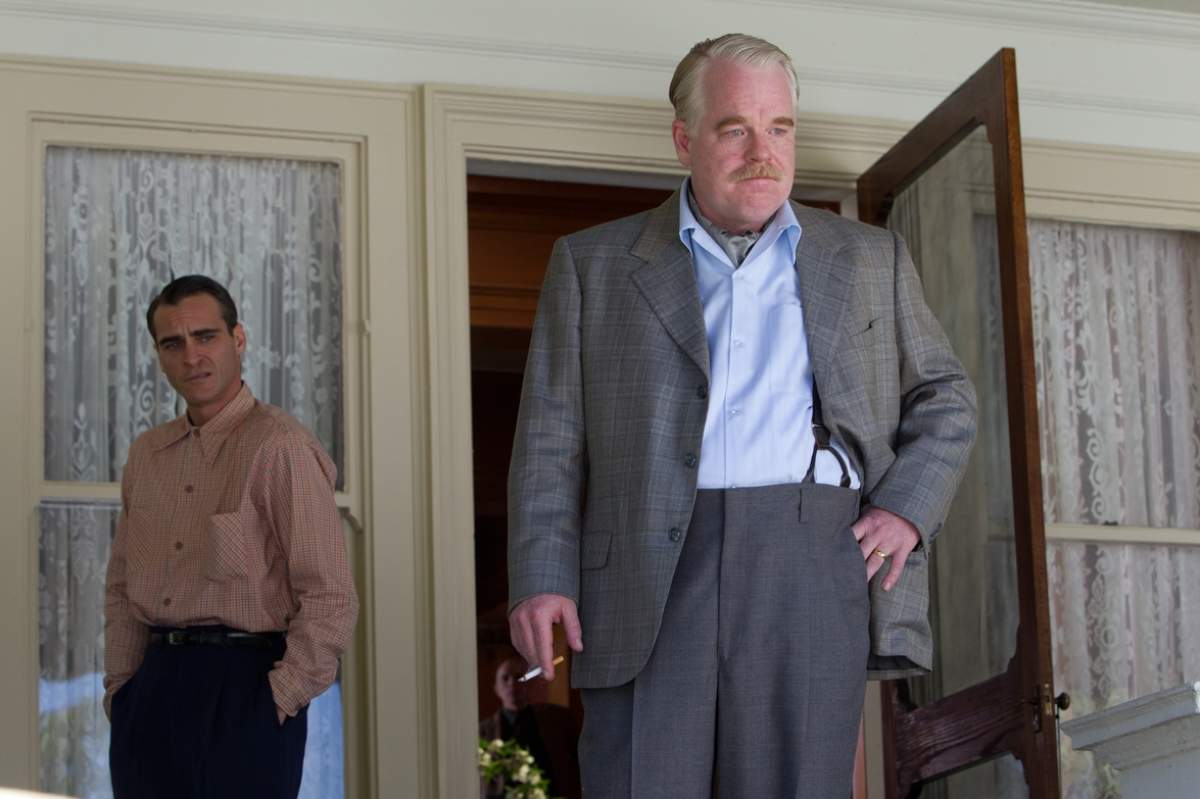
Soon after hearing the sad news of Philip Seymour Hoffman's death, IU psychology professor and film lover Jim Sherman suggested IU Cinema pay its respects.
"Philip Seymour Hoffman was a major figure in American film," asserts Sherman, who didn't have to try very hard to convince his friend, IU Cinema director Jon Vickers.
"The dedication to the crafthe was so serious about acting, while he could also come across as being playfulthat's what I think I loved about him," Vickers explains. " I can't think of a role where I ever questioned his acting. Often, even with great actors, I'll think, 'Oh, they overplayed that.' But I don't think I've ever seen a role of his where I was drawn out of his character."
Not only did Vickers want to pay tribute, "if we're going to do something," he told Sherman, "I'd like to do it big." A model sprang to mind in Christopher Marclay's project The Clock,a sequence of film clips showing clock faces over the course of twenty-four hours in real time. "I was thinking it would be fantastic to have audience members in there for twenty-four hours absorbing cinema."
In The Master, I kept being reminded of Orson Welles, by the confidence and the charisma that he had. He had such range, I think he could do it all.
Marathon Man
Finding a date for an experience of such ambition would prove challenging. Operating since January 2011, IU Cinema is booked far in advance for public screenings, classes, and lectures. "We only had one date available between now and the end of April," recalls Vickers.
Seizing upon the concept of the overnight marathon, Vickers curated a program of twelve films spanning Hoffman's career. Cinema patrons Jim Sherman and his wife Roberta came through with the funding; screening and copyright fees involved in showing twelve movies are not insubstantial.
The decision about what to include was difficult, compounded by the limited availability of certain prints given the demand triggered by Hoffman's death. Inevitably someone's favorite Philip Seymour Hoffman picture will be missing, but the scope of the tribute spans the actor's range and the state of the artfrom independent, art-house releases such as Jack Goes Boating, Hoffman's only directorial effort, to the blockbuster Mission Impossible 3, and three collaborations with director Paul Thomas Anderson: Boogie Nights, Magnolia and The Master. The homage also includes Capote, in which Hoffman's performance in the eponymous role earned the actor his only Oscar.
Known for his particular facility with self-loathing, awkward characters, Hoffman had the range to portray any number of different types, agree Vickers and Sherman. "In his role in The Master," Vickers explains, "I kept being reminded of Orson Welles, by the confidence and the charisma that he had. He had such range, I think he could do it all. He didn't need a loser character to be great."
"What distinguishes Philip Seymour Hoffman from the other major actors in American filmBrad Pitt, or George Clooney," inquires Sherman. "How is he different? He ain't your best-looking guy in the room. For someone like Philip Seymour Hoffman to be a major figure in American film says something about his ability. Usually people who look like he did became caricatures: people like Jack Elam, who had fixed roleswhen you needed this, that's who you went to. And Philip Seymour Hoffman was much more than that."
Screening Schedule
The following films will be shown without intermission:
4 p.m. Feb. 18, "Jack Goes Boating" The only film Hoffman acted in that he also directed tells the story of a limo driver's blind date in New York City.
5:40 p.m. Feb. 18, "The Savages" Siblings face the realities of familial responsibility as they begin to care for their aging father.
7:40 p.m. Feb. 18, "The Master" A Navy veteran drifts through a series of breakdowns until he becomes deeply involved in a cult, engaged by its charismatic leader.
10:10 p.m. Feb. 18, "Mission Impossible III" A secret agent faces a dangerous and sadistic arms dealer while trying to keep his identity secret in order to protect his girlfriend.
12:20 a.m. Feb. 19, "Almost Famous" A high school boy accompanies an up-and-coming rock band on tour and writes about it for Rolling Stone magazine.
2:25 a.m. Feb. 19, "A Late Quartet" Members of a world-renowned string quartet struggle to stay together in the face of death, ego and lust.
4:15 a.m. Feb. 19, "Doubt" A Catholic school principal questions a priest's ambiguous relationship with a troubled young student.
6:15 a.m. Feb. 19, "Synecdoche, New York" A theater director struggles with life while creating a life-size replica of New York City inside a warehouse as part of his new play.
8:20 a.m. Feb. 19, "Magnolia" The parallel stories of two men about to die, each estranged from a grown child uninterested in making contact.
11:35 a.m. Feb. 19, "Boogie Nights" Eddie would've been just another dropout if he hadn't met director Jack Horner, who introduces him to the adult film world and transforms him into a star.
2:15 p.m. Feb. 19, "Capote" While researching "In Cold Blood," an account of the murder of a Kansas family, the author develops a relationship with one of the accused killers.
4:15 p.m. Feb. 19, "Owning Mahowny" Things get messy for a bank manager with a gambling problem and access to a multimillion dollar account.
All films are free and open to the public, thanks to a donation from IU Cinema supporters Jim and Roberta Sherman. No tickets are necessary, though the cinema's seating is limited to 260 people.
All films will run back-to-back without intermission, and audience members may come and go as they please. Showtimes are approximated based on published running times of the films.






